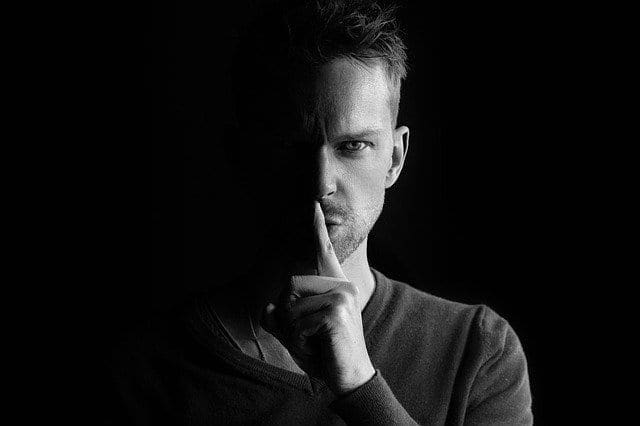Outlandish thoughts and ideas caused me to put myself in real danger.
For years I heard voices that were so real, so dynamic and full of energy, It felt like they were my friends. They’d urge me on and gave me an intense confidence boost. They made me feel like I could achieve anything. The voices would speak to me incessantly. What I didn’t realize was that I was manic, a symptom of Bipolar disorder and that the voices were a form of psychosis. This is the positive side of mania. The kind of mania that I’d happily live with. It can be an addictive state of mind. Who wouldn’t want to be bursting with creative ideas and the confidence to try anything? The problem is, it never stays this way.
Psychosis for me morphs into something more harmful. Those smooth edges can instantly become jagged and hurt me. This sharpness takes the form of delusions. Delusional thinking is when you have a belief that can’t be true. There’s no evidence to support what you believe, but you’re still convinced of it. A recurring belief I experience is that I can’t be hurt. I truly believe I’m invincible.
Believing you’re impervious to harm becomes dangerous, very quickly. In this frame of mind, I have a habit of walking out into the road without looking. The delusion at these times has such a grip on me I believe cars will either stop for me or if I’m hit I won’t be hurt. I’ve lost count of the near misses I’ve had, people shouting and swearing at me to get out of the road, or my partner grabbing me away from harm at the last moment. I’ve been knocked over twice. Somehow, both times I came away with just bruises. I’ve been extremely lucky I’ve never been seriously hurt.
I’m also a danger to myself behind the wheel. In one instance, I felt it would be a wonderful idea to drive in the middle of the road. Delusional, I believe that everyone will move for me, that the obstructions in my way will magically disappear. It’s pitch black and the windows of the car are fogged up whilst I’m driving. Before I know it, there’s a car driving towards me. I don’t need to swerve, the car will move for me, so I speed up. I hold my breath with anticipation of what will happen next. We collide and I scream with excitement as the car bumps and scrapes against mine. The wing mirror clips off. I squeal and laugh as I continue driving. The other car has come to a halt and I can see a figure frantically waving at me as I drive away. I’m laughing so much I’m not paying attention to the road. I stop at a busy junction and see a gap in traffic. It’s not nearly enough of a gap for me to sensibly get through. I see a car to the side hurtling toward me, barely managing to slow down in time. I misjudged the turn and stamp on the accelerator. I don’t turn the wheel enough and drive into a bollard, puncturing the driver’s side front wheel. This happened several years ago before I was diagnosed, and now, I make arrangements when I’m well to make sure I’m never in a position where this could happen again. I share a car with my partner, and when I’m unwell, I don’t drive. My partner will have my key and I won’t have it back until I’m better. This might sound drastic, but it’s necessary.
Bipolar is about finding a balance. It can feel like walking a tightrope, with no safety net if you fall. On one side is depression and the other is mania; both can be equally debilitating and dangerous. I rely on my partner, my close family, and friends to notice when I’m faltering on that tightrope. It’s taken time to get to this point. With mania, I’ve had to explain the symptoms I often show; quick, pressured speech, excessive spending, anger, and inflated self-esteem to name a few. If they can identify a number of these symptoms, they’ll speak to me about talking to a medical professional. At this point, although I’m probably having a fabulous time, I usually have enough self-awareness to know this behavior could easily escalate and I need to speak to someone about it. Taking risks and reckless behavior are signs that I might be experiencing delusional thinking. If this is happening, the people in my life know I need help right now.
Explaining psychosis to someone isn’t easy. At first, it can feel like an insurmountable task, because often people don’t have a frame of reference for it. I always tell people you don’t have to understand all of it to help and be supportive. Ask questions, listen to the answers and attend doctors or psychiatrist appointments if you can.
Delusions are especially difficult to understand. I tell people it’s important to not feed the delusion, whatever it is, by asking for more information about the ideas, or playing along. It’s also important to not do the opposite, and tell the person how ridiculous their belief is because, at that moment, it feels as real as anything they’ve ever experienced. Be gentle and calm, and empathize with what they’re saying. Focus on the feelings behind the facts and the story they’re telling you. Most importantly, ask if there is anything you can do to help. If you’re concerned about their welfare, always contact a medical professional or the local mental health services crisis, team.
I’ve found equipping myself and those important to me with knowledge about psychosis has helped me take control. It’s empowered all of us and that understanding keeps me safe and healthy.

0 Comments